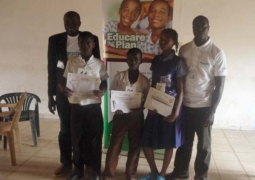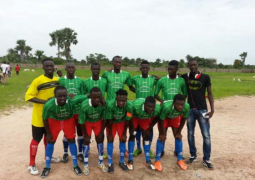Journalists have been urged to collaborate with other organizations involved in the fight against money laundering and terrorist financing to collectively ensure that appropriate measures are taken against crimes in a more harmonized and concerted manner.
This was part of the recommendations contained in a communiqué issued at a two-day interactive session for media executives and journalists in West Africa organized by the Inter-Governmental Action Group against Money Laundering in West Africa (GIABA), held in
According to the communiqué, the 30 journalists and media executives from 15 ECOWAS member states that attended the seminar recommended that media practitioners should collaborate with organizations like Financial Action Task Force (FATF) - the global standard-setter for measures to combat money laundering, terrorist and proliferation financing; GIABA – an arm of ECOWAS established to fight money laundering and terrorist financing in West Africa, and other similar organizations at national level.
The recommended collaboration will help devise a common direction and means to articulate a more concerted regional approach to the fight against money laundering and financing of terrorism, so as to put a stop to the millions of dollars being laundered in the West African sub region annually, the two page communiqué added.
“Journalists should undertake investigative work on Anti-Money Laundering and Counter Financing Terrorism (AML/CFT) issues and ask all critical questions from authorities on suspicion of money laundering and financing of terrorism activities,” the communiqué further stated.
“Capacity building activities, it went on, such as this training workshop should be held frequently at national levels to broaden journalist’s understanding on AML/CFT regimes.”
The communiqué has it that the media practitioners recommended that press organizations should have a permanent desk on financial crimes. They also recommended that a model of collaboration between GIABA and media organizations be developed on reporting of AML/CFT efforts.
It was also recommended that journalists should familiarize themselves with all the 21 predicate offences for money laundering and terrorist financing, as well as uphold the ethics and principles of journalism in all ramifications without fear or favor towards achieving professionalism in order to safeguard the interest and work of journalists.
In the communiqué, the participants expressed firm conviction that, “if the issues raised in this communiqué are given serious attention by all governments in the sub-region, the prospects of eliminating these evils from our societies will be enhanced”.
They also expressed “sincere appreciation” to the management and staff of GIABA for organizing this important interactive session dedicated to strengthening the capacity of journalists to fight the menace of money laundering and other financial crimes.
The objectives of the interactive session, the communiqué added, are to build the capacity of media practitioners, and to acquaint them with regional initiatives on AML/CFT framework, especially the mandate of GIABA in its sustained efforts to combat ML/TF in the West African region.
It also sought to raise awareness of the ills of money laundering and terrorist financing, and the need to report on financial crimes; as well as provide documentation and research materials to assist journalists in their reporting.
The training session, which provided an opportunity for the fruitful exchange of ideas, has set the stage for future fruitful collaboration between and among the media practitioners.
Read Other Articles In Article (Archive)
WODD holds workshop on AU women protocol
Mar 2, 2010, 1:36 PM



